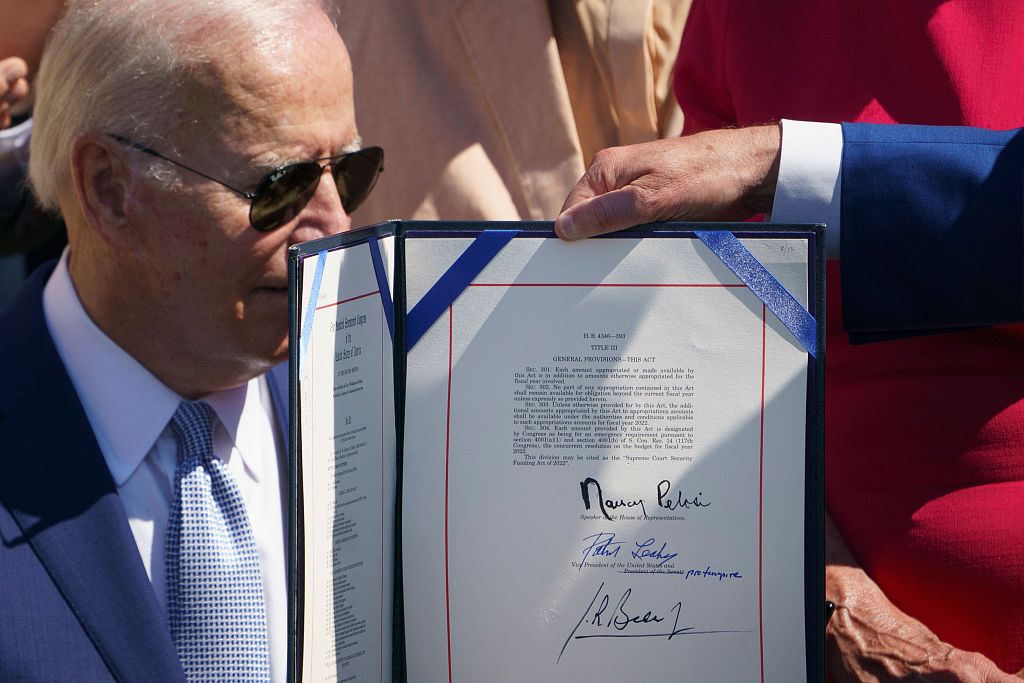New US chip subsidy bill poses threat to global economy
By Cheng Yu | chinadaily.com.cn | Updated: 2022-08-10 11:10

The newly-signed bill on chip subsidies from the United States government will intensify geopolitical competition in the semiconductor sector worldwide and will hinder global economic recovery and innovative growth, said two influential Chinese trade associations on Wednesday.
According to a joint statement of the China Council for the Promotion of International Trade and the China Chamber of International Commerce, the bill aims to enhance the advantage of the US in chips and launch unfair competition with "any country of concern", including China.
The two associations are strongly opposed to the bill, under which the US is using government power to forcibly change the international labor division in the semiconductor field that eventually will harm the interests of companies from all over the world, including Chinese and US firms.
To be specific, the bill stipulates a series of measures, including offering huge subsidies to the US domestic chip industry and investment tax credits for semiconductor and equipment manufacturing, so as to encourage companies to build factories in the US.
"On the one hand, it is a typical industry-specific subsidy, which does not conform to the non-discrimination principle of the World Trade Organization. On the other hand, the bill identifies particular countries as key targets, which leads companies to be forced to adjust their global development strategies and layouts," they said.
In particular, the bill gave a wide definition to "any country of concern". This infinitely expanded the discretionary power of its law enforcement, and has a typical pan-political color, they added.
Ensuring technologies "made in the US" are produced in the US will not only restrict companies' fair participation in global competition, but will also have a negative impact on global economic recovery and innovative growth, they said.
The two associations also called for the global business community to work together to eliminate the adverse impact of the US government's bill on the business community, and to take effective measures to safeguard their legitimate rights and interests when necessary.
























